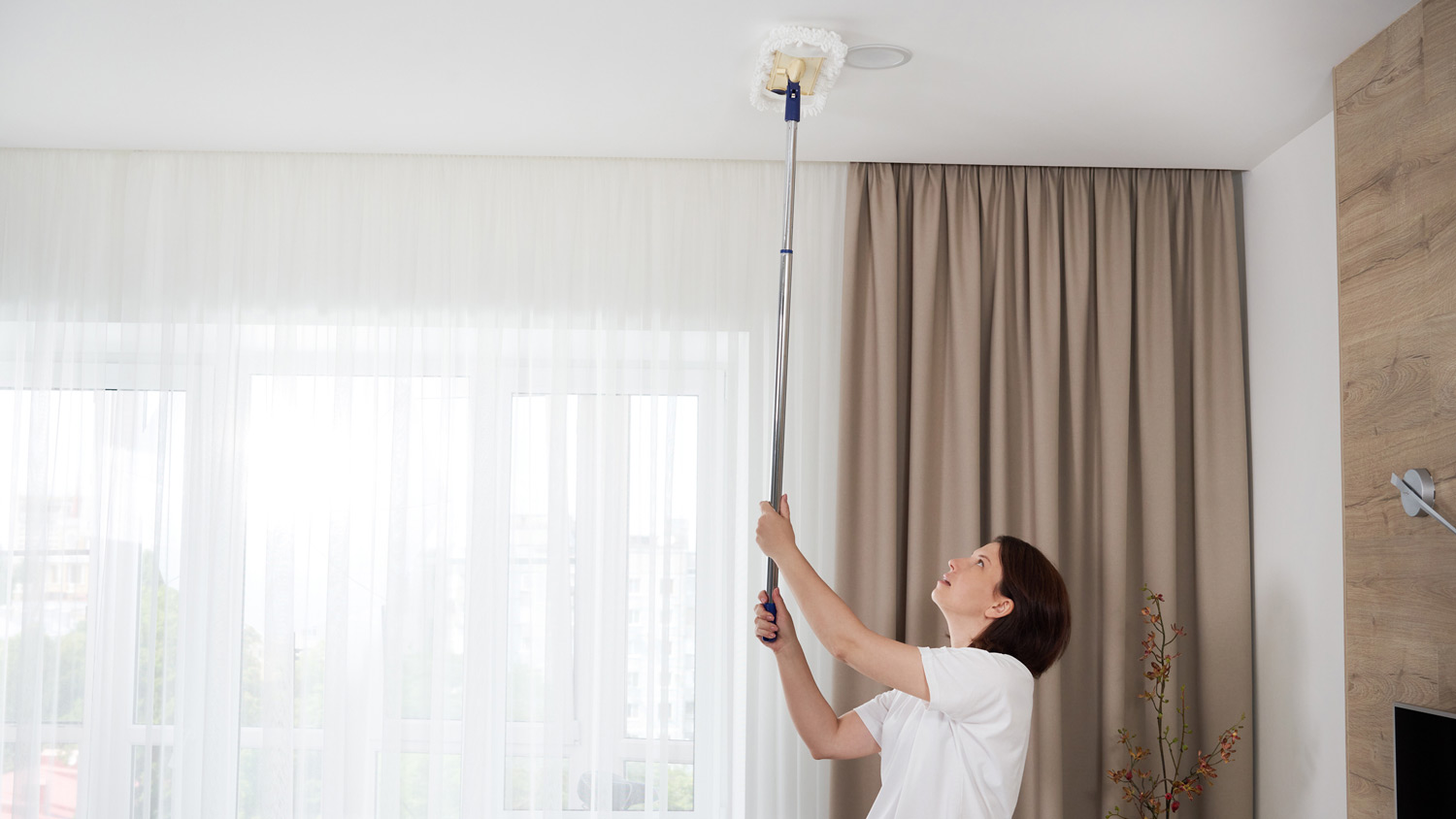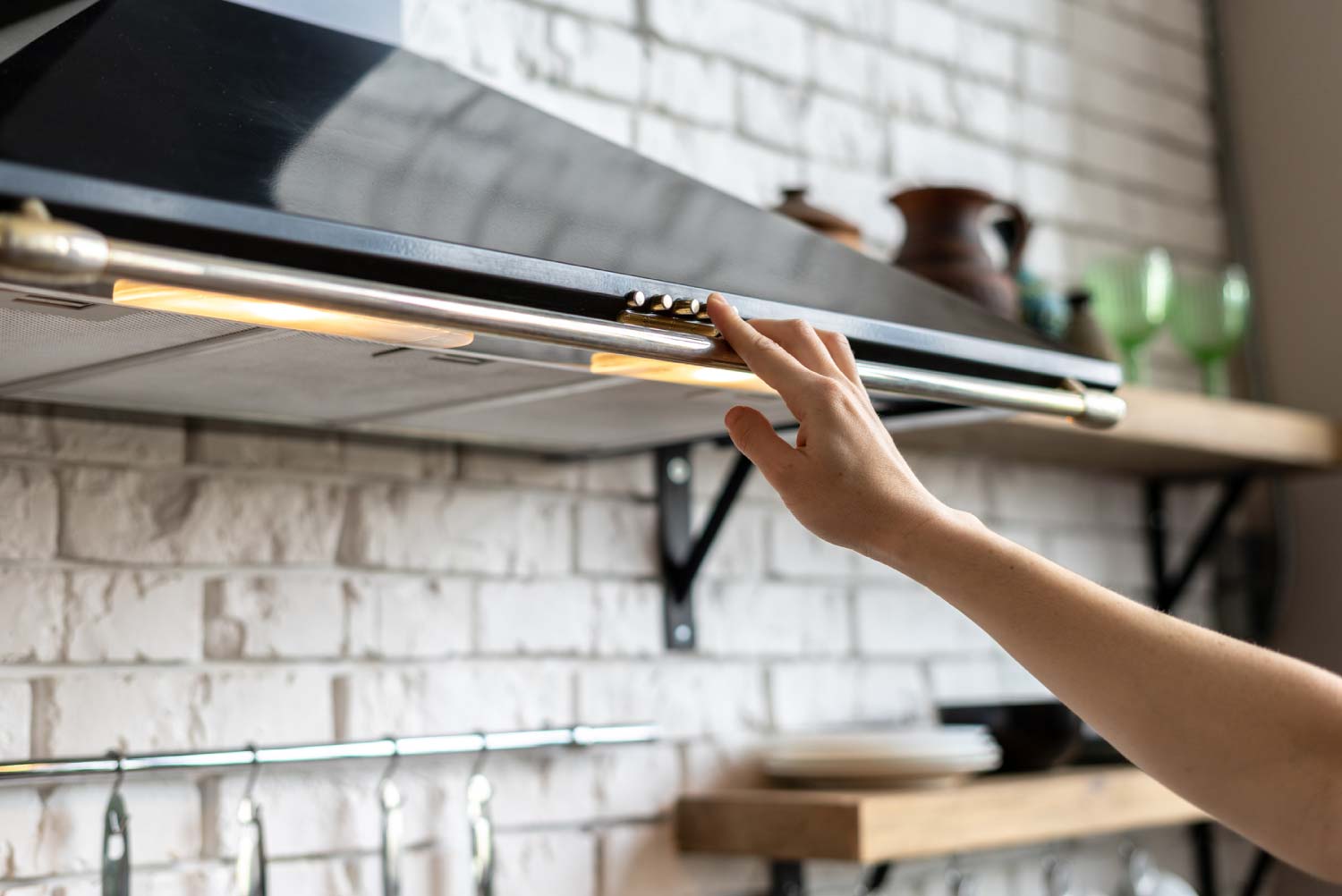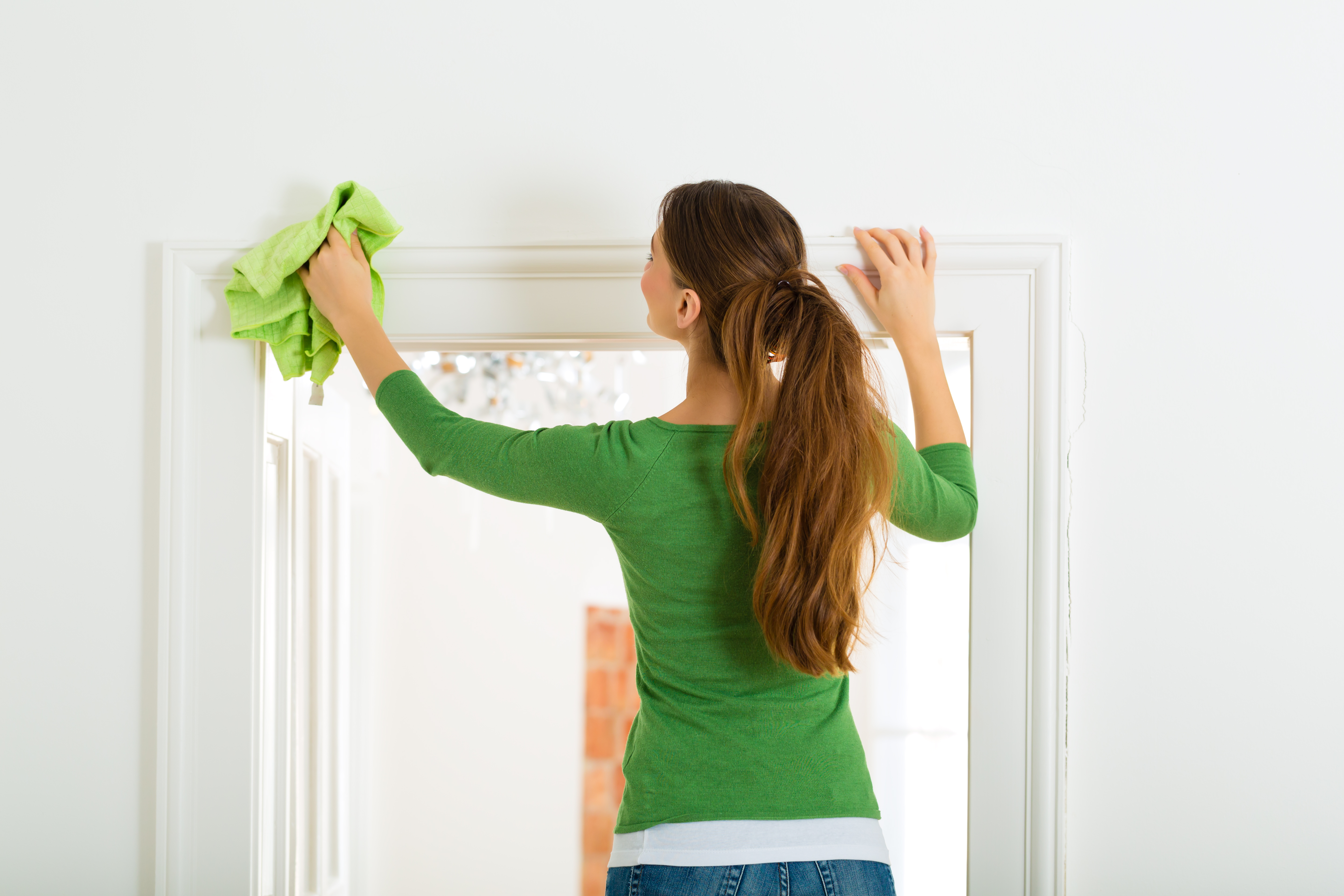
Discover the average acoustic ceiling cleaning cost, what affects pricing, and how to save. Get expert tips to budget for your acoustic ceiling cleaning project.
The down and dirty on getting your range hood clean and shiny


Even diligent homeowners can overlook the range hood during everyday kitchen chores. The truth is that the range hood should be cleaned as frequently as any other kitchen appliance.
It’s easy for your kitchen appliances to get dirty and caked with grease. Splattering bacon, bubbling sauces, and spitting hamburgers can pop everywhere, caking and drying into a sticky mess. If your range hood is looking stained and dirty, add cleaning your range hood to your house cleaning checklist to get it back to pristine condition fast.
Gather all the items you’ll need to avoid running around looking for them in the middle of your project. Slip on your gloves to keep your hands protected.
Run some hot water into a small bucket, mix your white vinegar with water, and pour it into your spray bottle.
Cleaning your kitchen range hood is simple when you follow these tips.
Using paper towels and degreasing detergent mixed in hot water, start cleaning at the left front of your range hood. Put some extra elbow grease into removing big splatters and sticky areas. Work your way around the hood’s exterior until you’ve scrubbed every inch of it, changing out your paper towels as they get coated with grime.

Move your attention to the underside of your range hood, which will probably be even more challenging than the outside. Your paper towels probably won’t stand up to the grease and dirt that’s accumulated here, so switch to your scrubbing brush.
Start at one corner of the inside and use your brush dipped in the detergent/hot water mixture to loosen and remove the caked-on grease and grime. After scrubbing an area, wipe it off with paper towels to remove bits of dirt the brush left behind.
You may run across extra-stubborn patches of thick grease and dirt that you can’t budge. Bring in your secret weapon: baking soda.
Mix baking soda and hot water to make a thick paste. Apply it to any stains still lingering inside and outside your range hood. Leave it for 15 to 20 minutes. It will break apart the stubborn stains.
Prepare for the next step by filling up your sink with hot water, but make sure it’s not too hot to put your hands in. Add a teaspoon of degreasing detergent and 2 tablespoons of baking soda.

This step may be the dirtiest part of your exhaust hood cleaning task since your filter gets the worst of the grease and grime spatter.
Remove it: Carefully remove the filter by pulling on its attached metal loop.
Soak it: Immerse the filter in your sink. Let it soak for 20 minutes to allow the detergent and baking soda to work their magic on the buildup of weeks’ or months’ worth of cooking. While it’s soaking, clean your glass stovetop.
Scrub it: Once it’s soaked, use your brush to scrub the filter's entire surface. Depending on how dirty it was, you might need to drain and refill your sink to get it completely clean.
Rinse it: Rinse it off with warm water and dry it with a clean towel.
Carefully pick up your clean, dry filter and slide it back into place. You should feel it click into place, and the outside edge will be flush with the opening.
Go back to the stubborn stains you previously covered with the baking soda paste. Knock them out with wet paper towels, removing both the paste and the offending stains. You might need to use your scrub brush to remove the last vestiges of grease and dirt.

Your final step involves another natural dirt-fighting superstar, which is white vinegar. Grab your spray bottle and douse the inside and outside of your range hood. Using damp paper towels, wipe down the entire area one last time. The vinegar and hot water spray solution cleans off any remaining particles and freshens up the range hood’s surface nicely.
Once you’ve cleaned your range hood, it’s time to check the vent. Over time, grease and dirt can build up in a range hood vent and become a fire hazard.
Test the vent’s function by holding a piece of paper over it and turning on the range. If the range hood sucks up the paper and holds it in place, it’s working properly. If not, call a pro with the tools and experience to thoroughly clean the vent and ensure it functions safely and efficiently.
Range hoods are essential in keeping your home free from excessive heat and moisture while cooking. However, they are also regularly exposed to grease and smoke. A grease buildup can affect your range hood's functionality, preventing it from removing heat and moisture from your home.
The frequency at which you should clean your range hood depends on how often you use it. If you cook a full meal daily, you may need to clean it monthly. However, a seasonal cleaning should suffice if you cook infrequently. Adding this task to your kitchen cleaning checklist can help keep your cooking space fresh and clean.
Not sure whether your range hood needs to be cleaned? Here are several signs to look out for:
Unusually loud noises
Reduced suction power
Persistent odors
Greasy buildup
Smoke in the kitchen
Cleaning your range hood regularly will keep it functioning at its peak. If you notice any of these signs (or it’s been a while since you cleaned it), it’s time to get scrubbing.
Cleaning your range hood yourself takes a bit of time and elbow grease, but it doesn’t require special skills or expensive tools. You can handle it yourself in under an hour, either as a stand-alone project or part of your deep cleaning schedule.
However, many homeowners prefer to leave this task to a pro. A house cleaner near you can tackle your range hood quickly and efficiently, using tried-and-tested products and methods. It’s unlikely you’ll hire someone simply to clean your range hood; instead, this task will probably be part of a larger house-cleaning service.
If you’d prefer to leave the work to a pro, ensure it’s within your budget. Professional house cleaning costs $120 to $230, with many homeowners paying an average of $170. To get your range hood cleaned, you might need to pay for a deep cleaning session; this can cost between $200 and $400.
From average costs to expert advice, get all the answers you need to get your job done.

Discover the average acoustic ceiling cleaning cost, what affects pricing, and how to save. Get expert tips to budget for your acoustic ceiling cleaning project.

Discover the average kitchen hood cleaning cost, what impacts pricing, and how to budget for this essential maintenance. Get tips to save and keep your kitchen safe.

Curious how much it costs to hire a housekeeper? Discover 2025 prices, key cost factors, and tips to save on professional housekeeping for your home.

If you’re someone who hates breaking out the vacuum and mop, hiring a house cleaning service can be a major time-saver. Here are some tips for hiring the best pro for your space.

These helpful tips can teach you how to remove spray paint from practically any surface, including skin, stone, plastic, glass, and fabric.

Although quartz is highly durable, stains can happen. Learn why your quartz countertop is staining, what to do about it, and when to call a pro.